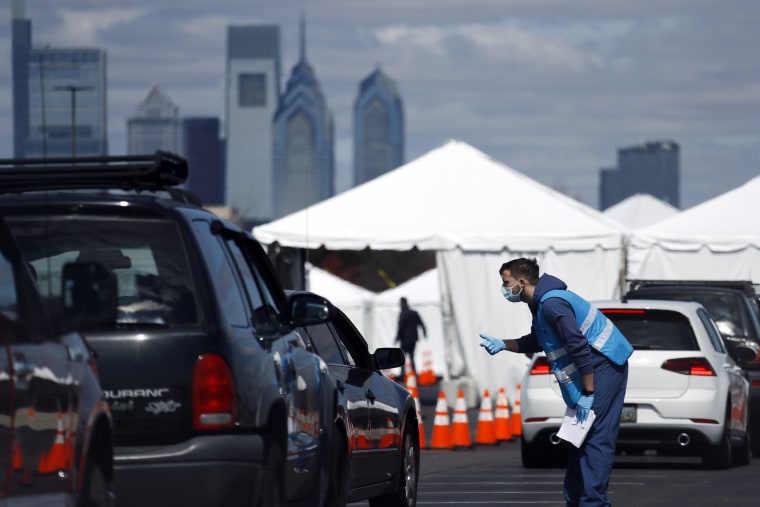While it's too soon to say whether Philadelphia has avoided a surge in coronavirus cases that would overwhelm its health system, the nation's sixth-largest city has, so far, avoided becoming what some feared would be the outbreak's next hot spot.
During a news briefing this week, Vice President Mike Pence called Philadelphia "an area of particular concern," adding that he'd assured Pennsylvania Gov. Tom Wolf that the federal government would "continue to flow resources and support to that community."
Full coverage of the coronavirus outbreak
As of Friday afternoon, the city of Philadelphia had reported 5,793 coronavirus cases and 137 deaths.
In contrast, New York City, about 100 miles north, had logged more than 87,000 cases and nearly 5,000 deaths.
Experts predict Philadelphia and its surrounding suburbs will reach the peak of coronavirus cases next week, and the city appears to be prepared for the onslaught.
"We do expect cases will increase in Philadelphia and unfortunately deaths will increase," Dr. Rachel Levine, secretary of health for Pennsylvania, said during a news conference Friday.
But, she added, "we have been working tirelessly to buttress the hospitals and health systems to make sure they can deal with that rise."
We think we’re in a spot where we can handle what’s coming.
Across the state, Levine said that approximately 45 percent of hospital beds, 38 percent of intensive care unit beds and nearly 70 percent of ventilators remained available for use as of Friday.
What's more, Temple University has set up 200 beds inside its sports arena as a makeshift temporary hospital, designated for coronavirus patients who are not sick enough to be put on ventilators.
"We think we’re in a spot where we can handle what’s coming," Jim Kenney, Philadelphia's mayor, said Friday.
Download the NBC News app for full coverage of the coronavirus outbreak
Nevertheless, Kenney urged Philadelphians not to become complacent regarding social distancing.
"We're seeing numbers starting to flatten a little bit, but that's no reason to take it easy," Kenney said. "This thing could last through summer."
And despite the White House coronavirus task force's suggestion that Philadelphia may become a new hot spot of disease, Kenney said, "there's no need to have a political food fight with the people we need to help us."
Early response
Pennsylvania schools have been closed since March 13, and will remain closed for the rest of the school year. A week after schools closed, Philadelphia issued a stay-at-home order, on March 22.
Levine said Philadelphia has lead the way in early response to the coronavirus outbreak.
The state has been working closely with the city and surrounding counties on mitigation efforts, Levine said.
"This includes the closure of nonessential, non-life-sustaining businesses, and the stay-at-home order, which actually started in Philadelphia," Levine added.
Still, the city remains on alert. Levine quoted the head of the National Institute of Allergy and Infectious Diseases, Dr. Tony Fauci, by saying, "The virus determines the timeline. We don't determine the timeline. And we're going to be watching all of our statistics really carefully, especially over the next number of weeks."

